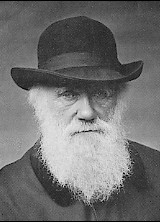
Ethology
Overview
Ethology is the scientific study
of animal behavior, and a sub-topic of zoology
.
Although many naturalists have studied aspects of animal behavior throughout history, the modern discipline of ethology is generally considered to have begun during the 1930s with the work of Dutch biologist Nikolaas Tinbergen
and Austrian biologists Konrad Lorenz
and Karl von Frisch
, joint winners of the 1973 Nobel Prize in Physiology or Medicine
. Ethology is a combination of laboratory and field science, with a strong relation to certain other disciplines such as neuroanatomy
, ecology
, and evolution
.
Scientific method
Scientific method refers to a body of techniques for investigating phenomena, acquiring new knowledge, or correcting and integrating previous knowledge. To be termed scientific, a method of inquiry must be based on gathering empirical and measurable evidence subject to specific principles of...
of animal behavior, and a sub-topic of zoology
Zoology
Zoology |zoölogy]]), is the branch of biology that relates to the animal kingdom, including the structure, embryology, evolution, classification, habits, and distribution of all animals, both living and extinct...
.
Although many naturalists have studied aspects of animal behavior throughout history, the modern discipline of ethology is generally considered to have begun during the 1930s with the work of Dutch biologist Nikolaas Tinbergen
Nikolaas Tinbergen
Nikolaas "Niko" Tinbergen was a Dutch ethologist and ornithologist who shared the 1973 Nobel Prize in Physiology or Medicine with Karl von Frisch and Konrad Lorenz for their discoveries concerning organization and elicitation of individual and social behaviour patterns in animals.In the 1960s he...
and Austrian biologists Konrad Lorenz
Konrad Lorenz
Konrad Zacharias Lorenz was an Austrian zoologist, ethologist, and ornithologist. He shared the 1973 Nobel Prize with Nikolaas Tinbergen and Karl von Frisch...
and Karl von Frisch
Karl von Frisch
Karl Ritter von Frisch was an Austrian ethologist who received the Nobel Prize in Physiology or Medicine in 1973, along with Nikolaas Tinbergen and Konrad Lorenz....
, joint winners of the 1973 Nobel Prize in Physiology or Medicine
Nobel Prize in Physiology or Medicine
The Nobel Prize in Physiology or Medicine administered by the Nobel Foundation, is awarded once a year for outstanding discoveries in the field of life science and medicine. It is one of five Nobel Prizes established in 1895 by Swedish chemist Alfred Nobel, the inventor of dynamite, in his will...
. Ethology is a combination of laboratory and field science, with a strong relation to certain other disciplines such as neuroanatomy
Neuroanatomy
Neuroanatomy is the study of the anatomy and organization of the nervous system. In contrast to animals with radial symmetry, whose nervous system consists of a distributed network of cells, animals with bilateral symmetry have segregated, defined nervous systems, and thus we can begin to speak of...
, ecology
Ecology
Ecology is the scientific study of the relations that living organisms have with respect to each other and their natural environment. Variables of interest to ecologists include the composition, distribution, amount , number, and changing states of organisms within and among ecosystems...
, and evolution
Evolution
Evolution is any change across successive generations in the heritable characteristics of biological populations. Evolutionary processes give rise to diversity at every level of biological organisation, including species, individual organisms and molecules such as DNA and proteins.Life on Earth...
.

